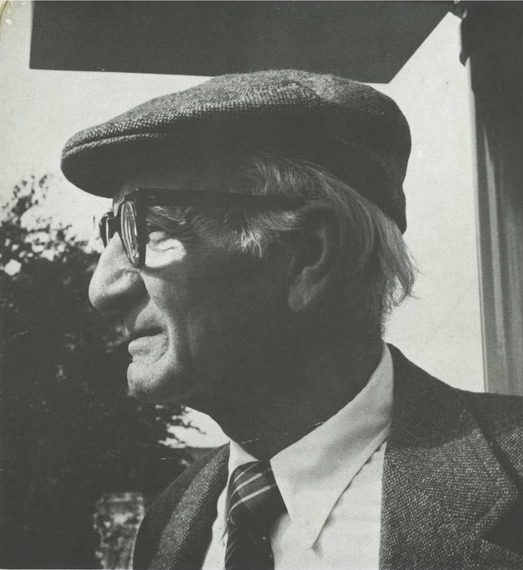Photo provided by Nancy Abbott Young
2015 brought many challenges for the Arab American and American Muslim communities. The presidential primary season kicked into gear, and along with it came a fresh wave of bigotry. In the wake of the terrorist attacks of Paris and San Bernardino, many in our community felt an unwarranted backlash of hateful rhetoric from elected officials, presidential candidates, and fellow citizens. Syrian refugees were almost immediately and reflexively deemed suspicious. Some governors mobilized around denying the opportunity for this vulnerable population to resettle in their states. With an increase in hate crimes and discriminatory measures being proposed on a national stage, I know that 2016 will bring a new flood of challenges.
With a leading presidential candidate paying 2 million dollars a week to air an ad touting his call to ban Muslims from entering the United States, and a hate crime that took the life of a Sikh man in California on January 1st - I'm left with no doubt that this new year will carry its fair share of challenges for Arab Americans and American Muslims. But, even when faced with this climate of hate and fear, I'm not discouraged from engaging in the 2016 election. In fact, I am excited.
Looking at the year ahead of us, I am reminded of Arab Americans who, at times when our national character has been challenged, have stepped up and engaged. It's those individuals that remind me that to change things, we must continue to energetically and effectively advocate for what we believe in.
One such individual left his mark on Takoma Park, Maryland.
On November 17th, Governor Larry Hogan announced that he was requesting that federal authorities cease the additional settlement of Syrian refugees in Maryland. On November 30th, the City Council of Takoma Park unanimously passed a resolution welcoming Syrian refugees. As Mayor Kate Stewart wrote, Councilperson Rizzy Qureshi took the lead in drafting the resolution. It read, "the City of Takoma Park has a long history of welcoming immigrants and building a caring, inclusive and strong community which celebrates its diversity[.]" It continued, "The City Council of Takoma Park, Maryland hereby affirms its duty and willingness to welcome our Syrian neighbors who are approved as refugees, because to shut the door on those in need is inconsistent with the basic values of our community."
As the resolution read, Takoma Park has a long history of creating a caring and inclusive community. The imprint of those that came before was evident. Specifically, that of Sam Abbott.
Sam Abbott served as Mayor of Takoma Park from 1980-1985. When he saw injustice, he mobilized. His contributions are seemingly endless. From organizing the unemployed during the Great Depression for no pay, to serving in the Air Force during World War II, Sam Abbott was the definition of a tireless advocate for justice. After WWII, he worked to have the United States sign a petition to pledge to refrain from using nuclear weapons. He stood in front of bulldozers to halt construction on highways that would have destroyed neighborhoods. He led efforts to have Takoma Park declared a nuclear-free zone. Under his leadership, the city became one of the first sanctuary cities in the country, welcoming central American refugees who were fleeing violent civil wars.
Samuel Abdullah Abbott was an Arab American of Syrian descent.
He passed away in 1990. The stories that live on paint a remarkable image of an advocate with endless gumption and heart. From challenging a sitting mayor to an arm-wrestling match on the Council stage (the mayor called him "an old man"), to taking over a school board meeting after board members walked out on protestors, to being arrested over 40 times for protesting various causes, Sam Abbott was proof that "the little guy can take on the system."
He was once quoted as saying, "I'm a perpetually mad person. I hate injustice. As far as I'm concerned I'm living to fight injustice... I'm too mad to sleep." Sam Abbott had the extraordinary ability to turn that anger into effective advocacy that has spanned generations.
An artist, a union organizer, a veteran, a public servant, a perpetually mad civil rights advocate, a voice for the voiceless - Sam Abbott was a great American. Sam Abbott was an Arab American.
The spirit and fight that Sam Abbott brought to Takoma Park is now deeply ingrained in the community. The Takoma Park resolution is a piece of his legacy, a legacy that reminds us that in the face of injustice, we mobilize.
As I reflected on the challenges that this new election cycle will bring, I saw that if we can tap the spirit that lives on in Takoma Park - if we can remember that we stand on the shoulders of giants, then we can change this climate. We can chip away at the bigotry that has pervaded our national rhetoric. In the face of so much hate, it's hard not to become discouraged. But the next time you see a candidate's hateful ad, hear a politician proposing a discriminatory law, witness someone scapegoating Syrians, or directly experience bigotry, remember Sam Abbott and get mad.

